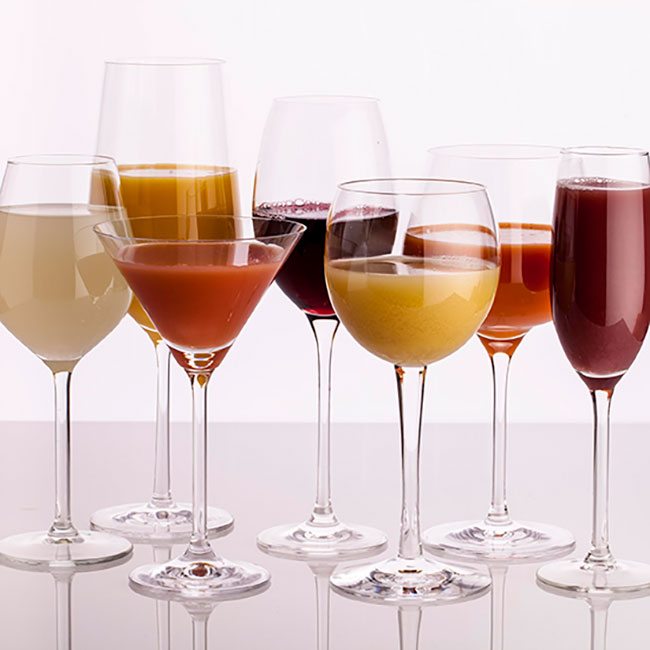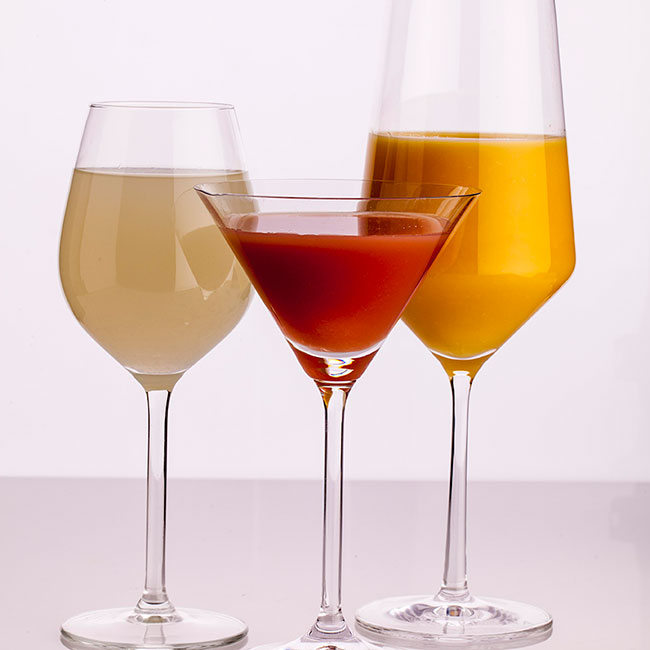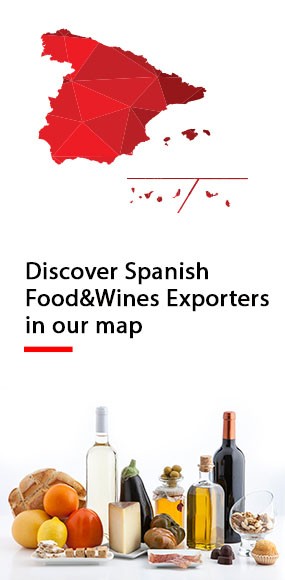.png.transform/rendition-xs/image_image%20(1).png)
Delicious and Refreshing Fruit Juices from Spain
Spanish juices – delicious, refreshing and packed with vitamins, minerals and antioxidants – are esteemed both in and outside of Spain for their quality and variety: orange, grape, pineapple, grapefruit, peach, tomato, apple, mango and many more.

The juice business in Spain is represented by three main product types: fruit juices, which are obtained from ripe, fresh or preserved fruit, and contain the color, aroma and characteristic flavor of the fruit that they’re derived from; fruit juices from concentrate, which are obtained by diluting previously concentrated fruit juices with water – maintaining the physical, chemical, nutritional and organoleptic traits of the fruit sources; and fruit nectars, which are obtained by adding a regulated quantity of water and sugar and/or honey to juices or purees. In 2018, Spain produced nearly 11 billion liters of what we refer to collectively in this article as “juice".
Orange juice from Spain
In terms of production quantity and value, the dominant product is orange juice, which accounts for around 27% of the market, followed by single and multi-fruit juices, such as pineapple, pineapple-grape, peach-grape, peach, apple, tropical fruits, and tomato. And though much of these products is consumed by Spaniards – who drink 10% of all of the fruit juice and nectar consumed in the European Union –, they are also extremely popular abroad. In fact, 791 tons of Spanish fruit juice were exported in 2014, more than three-quarters of which went to European countries including France, the United Kingdom and Germany.
Given the size and scope of this industry, it's interesting to note that this sector is the domain of only fifty companies or so. Seventeen of them belong to the Spanish Association for Fruit Manufacturers (ASOZUMOS), or which collectively represents more than 70% of total juice production in Spain. This organization, which supports and promotes its members' products, also helps to secure legislation that guarantees the quality of its products and the responsible practices of its companies. To get a handle on the scope of this market, we spoke to two of ASOZUMOS member-companies, representing different areas of the sector.
Orange juice is the overall top product in the Spanish juice sector, with exports of 259 tons in 2018. Grape juice is the second largest juice export (257 tons), but the first in terms of revenue. A significant player in the grape juice export market is Conuva, a family company based in Alcázar de San Juan, Ciudad Real (Castile-La Mancha), that is dedicated to producing grape juice, juice concentrate and other derivative products. With annual turnover of 21 million euros, CONUVA exports an average of 84% of its products. Of their total exports 70% are destined for European Union countries, while 7% goes to North America, 5% to Africa and the remaining 2% to other European countries and Asia.
According to Conuva’s Quality Director Rosa Lozano, their success begins with the fact that, “We treasure the raw materials in our region, an advantage that makes it possible to position ourselves as leaders in the production and sale of grape juice in international markets. Also important are our exhaustive quality controls, which insure food safety and competitiveness in terms of price.” She goes on to say that, “The company’s strategy in recent years has been based on constant reinvestment, optimizing its production processes and product range, and the identification of opportunities abroad… all leading to its sustained growth.
New international markets for the Spanish juice

This translates not only to success in consolidated markets in Europe, for example, but also in newer destinations like Asia and North America, where they participate in fairs, market studies and trade missions, and provide product support for distributors to help increase international expansion. Add this to a dedication to sustainability and respect for farmers and other partners, and you have a clear recipe for success.
For their part, the Lleida-based (Catalonia) company Indulleida and its affiliate Zufrisa pride themselves on a wide range of fruit and vegetable juices, produced from more than 300,000 tons of fresh fruits annually. These include peaches, nectarines, apples, pears, mandarin oranges, lemons, grapefruit, strawberries, raspberries, cherries, apricots, plums, tomatoes, carrots, grapes, kiwis, dates, kakis and cucumbers. According to Sales Director Carlos Plana Sánchez, the company was founded in 1980 through the union of more than 150 fruit cooperatives, “with the principal objective of dealing with the huge quantity of fruit that local markets were unable to absorb, given the huge quantity of stone and seed fruit produced in this area.” Today, Indulleida and Zufrisa have combined annual sales of 75 million euros, and the product lines include juices, nectars, purees, concentrates and a huge range of fruit derivatives.
Indulleida exports 75% of their production, primarily to Central and Eastern Europe, followed by Asia (mainly Japan), Australia, South and Central America and the Middle East. Their newest market is Southeast Asia. Plana points to a number of key factors in their success: “Our geographic location in an area known for its excellent fruit and strategic for exporting to Europe; our close relationship with the owner-cooperatives and purveyors of the raw materials; our versatility and flexibility; and our high investment capacity”.
Through their different approaches to the industry, these companies have secured their places in the export market for Spanish juices. The outlook for the future remains strong, given the impressive variety of quality Spanish fruits, offering seemingly endless possibilities for expansion.
Text: Adrienne Smith/@ICEX

